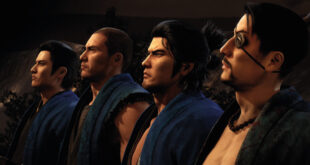The studio was opened a year ago with a unique business strategy in place – a Core Techology group would work on an engine and tools that up to three game teams would utilise across all their games, with a grand plan to have the studio producing two titles a year for owner Sega Europe. The majority of art and audio would, meanwhile, be outsourced.
At E3, it was announced that Sega Rally for PC, 360 and PS3 was to be its first title – but a second project is about to get underway and a third is on the horizon.
“We have very ambitious plans and we’re looking for more excellent staff to join the studio and staff us up for work on projects we’re setting up for the future,” studio head Guy Wilday explained to Develop, saying that the door was open to not only those with racing experience but also those with a passion for the genre.
Wilday says the structure of the outfit makes for a studio that puts the emphasis on smaller team sizes to make for a better working environment – something he thinks will attract people to the Sega Rally team: “The idea behind that is so we have a smaller, more focused more creative group that’s more involved and therefore very passionate about the game. Rather than it being a big team where you are playing a small part it’s a big team where you play a much larger part. By outsourcing art and audio, and focusing on external tech, the game team is really allowed to focus on game content. It’s a creative center here.”
But Wilday rebuffs some of the fears other studios have expressed over finding new staff. “I think in general good staff are in demand,” he explained. “We’re looking for good experienced people in general. If you’re a good person in this industry there are lots of opportunities in the business – so really good people are not only valuable, they can be hard to find.”
The racing team’s current focus is to find the right people from the development sector to help complement the studio’s Core Technology group, with an emphasis on programmers. But further down the line Wilday sees lots of promise in finding staff from outside the games field.
“There will be a time later in the development of the studio that we are more than happy to look for students and look broader and seek people with broaders skills – certainly we’ve done that before with huge amounts of success and found some exciting people through that process. Right now to meet our current requirements, in looking to get everything up and running, experience is key,” he says, but acknowledges the key factor for many growing studios.
Simply: “Next-gen is demanding. We’re doing a lot of outsourcing to do with that, and our key strategy has been to outsource art and audio to external companies to try and help with that. But the other part of it is that we want to achieve our ambitious plans. We’re planning to start up a number of teams here for new games, which was always the plan – the first project is up and running, and we’re looking to get our second one going as soon as possible.”

 MCV/DEVELOP News, events, research and jobs from the games industry
MCV/DEVELOP News, events, research and jobs from the games industry
